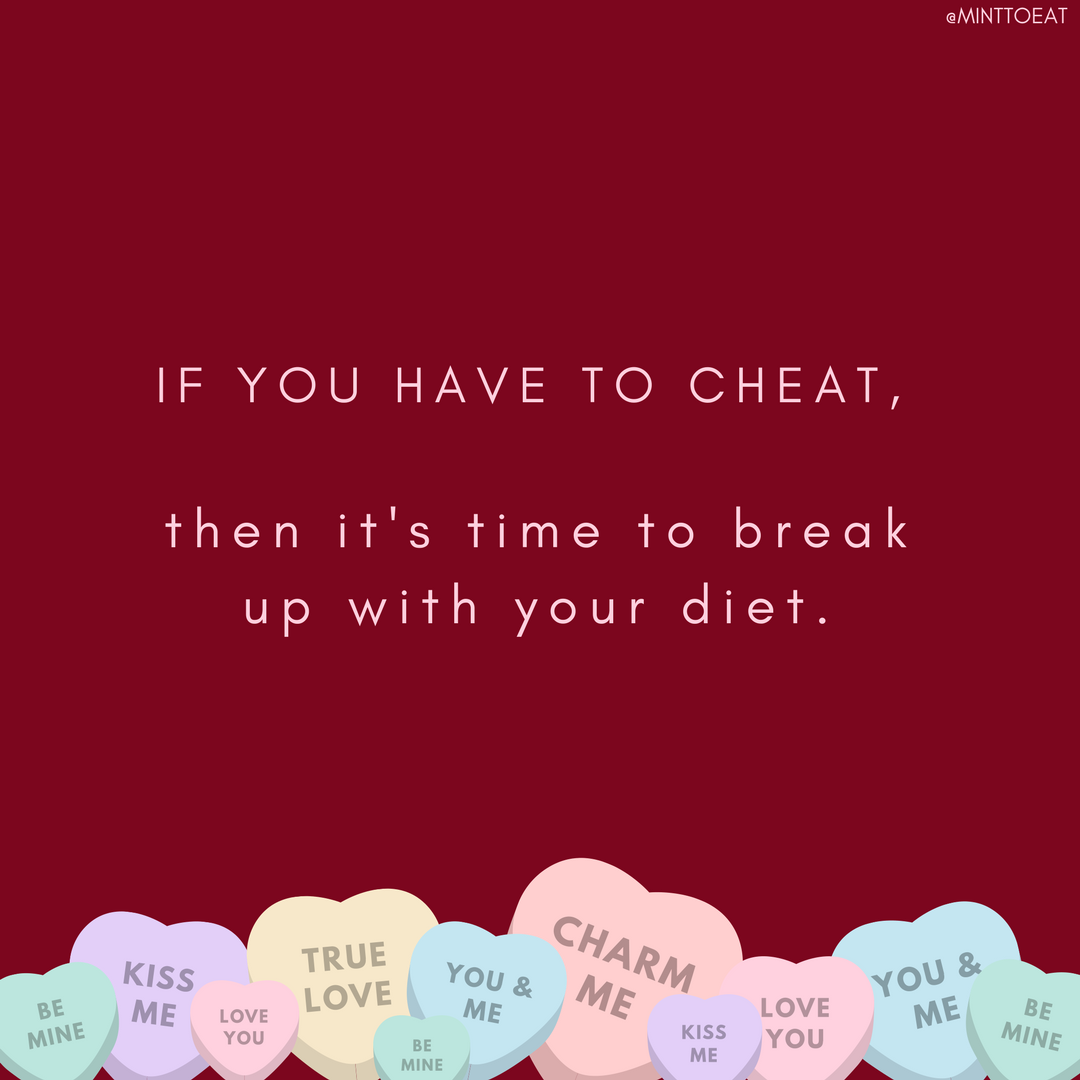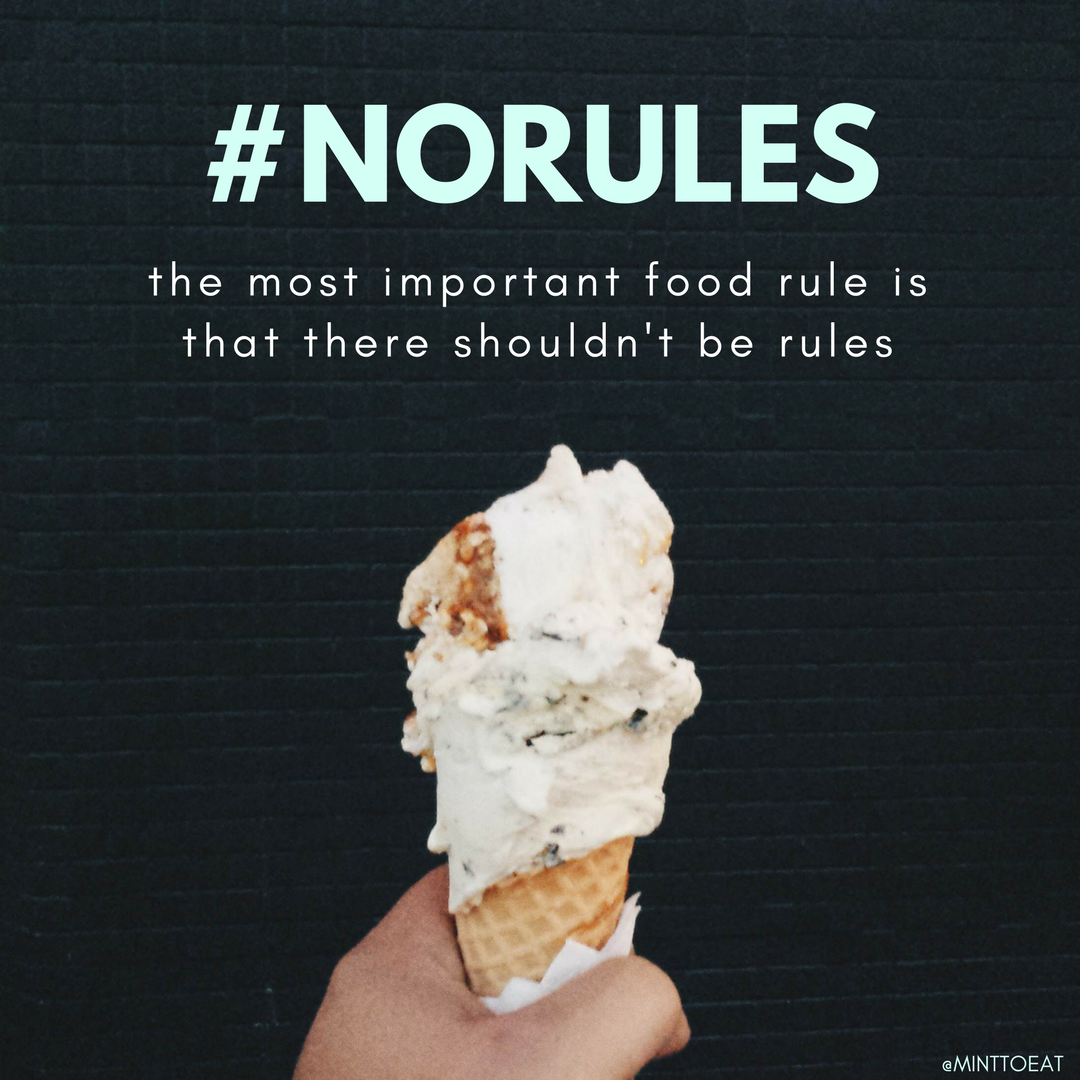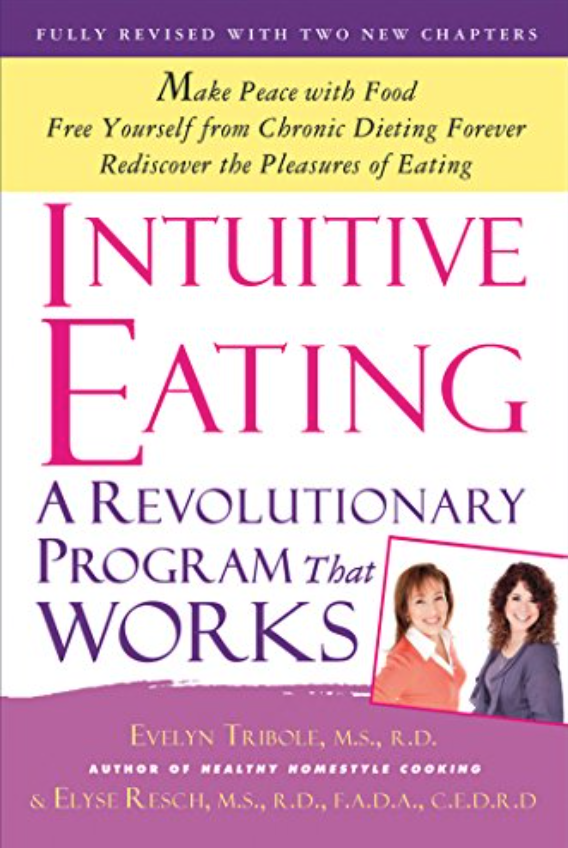if you have to cheat, then break up

February 7, 2018
It could be a specific diet with laid out meals. Or following a personal ideology of “good” and “bad” foods. Or rigidly counting calories. Or really just any eating plan that controls your food decisions.
My guess is day after day of eating only “clean” foods and adhering to strict rules, that diet is going to get monotonous. And a “cheat” may will happen. Followed by feelings of guilt and shame. Followed by vowing to never cheat on your crazy clean diet again. And so it goes…
Plain and simple: if you have to cheat, then it’s time to break up with your diet.

I am no cupid, but I do know one thing about relationships:
When a relationship causes you to feel trapped or not good enough, then it may be time to take a step back.
This applies to romantic, business, and family relationships. And you best bet it applies to your relationship with food. Yes, you have a relationship with food and diet culture warps it. We are constantly told that our bodies aren’t perfect and we should change how we eat. There are so many food rules out there…
Don’t eat after 8PM.
right…your stomach can tell time and shuts off at exactly 8:01PM
Replace breakfast and lunch with a shake.
pst…you’re gonna gain the weight back once you start eating normally
Go sugar free.
ice cream is delicious, don’t give that up for anything
Only eat “whole” foods
ha! whatever that means
A few years ago, hearing new food rules would instantly fill me with hope. Maybe this was the nutrition trick I had needed all along to reach my (perceived) ideal weight!! So I followed the rules with everything I had in me, white-knuckled the entire time. My excitement quickly turned into feeling trapped. So I would cheat. Then feel I’d feel guilty and at a loss. Who can relate?
Restricting what you eat is a surefire way to make you feel a plethora of negative emotions. Just one diet cheat can make you feel like a failure. It’s not you that is failing, it’s the diet. Dieting is designed to fail (more on that here).
The most important food rule is that there shouldn’t be rules. You are allowed to eat when you are hungry. And you are allowed to eat when you aren’t necessarily hungry. You are allowed to eat satisfying foods, no matter the sugar or fat content. You are allowed to go a day without eating any vegetables. And you are allowed to eat an only plant-based diet.You are allowed to eat what sounds good and what makes you feel good.
You are allowed to decide what you eat for yourself.

Time for a quick quiz.
Does your current diet make all your food choices for you?
Do you feel restricted or frustrated?
Do you feel like your current diet is full of food rules?
Do you feel like your current diet isn’t sustainable?
If you answered “yes” to one or more of these questions, 
it’s time to break up with your diet. A truly healthy and satisfying diet won’t be one you need to “cheat” on. If you’re interested in learning more about following a non-diet diet with ZERO rules, I’d recommend reading Intuitive Eating. It can be scary to not follow any food rules, but the happiness and freedom that accompanies intuitive eating is incredible. And I want that for you! It’s a process though, even I am still learning and growing.
This week, try journaling about the foods you eat and how they make you feel. Disregard diet culture and food rules. Explore different cuisines. Make a list of things you like about yourself. Eat vegetables. Eat ice cream. Eat food. Focus on nourishing and fueling your body. Love your body and all the amazing things it can do.
PSA: Valentine’s day is in a week. More importantly, discount candy is in a week and one day. Happy early Vday, everyone! ♥
Caroline, I love this post! Especially where you give an activity at the end to help people reflect on their thoughts around food. Keep up the amazing and important work!
[…] They can be so refreshing and exciting! But I think it’s important to point out that a healthy eating pattern shouldn’t cause you to “cheat.” So if that is how you feel, we should look at your current nutrition […]
[…] Any client of mine has been asked this question – and for good reason. Growing up in this world we collect messages and experiences, like putting coins in a piggy bank, ultimately setting the stage and writing the script for how to perceive and respond to life. Naturally, many messages and experiences we receive, especially around food, body, and exercise, are saturated with diet culture propaganda. […]